Alaphilippe: Winning Milan-San Remo is huge moment in my career
Frenchman explains how Deceuninck-Quick Step dominated La Classicissima
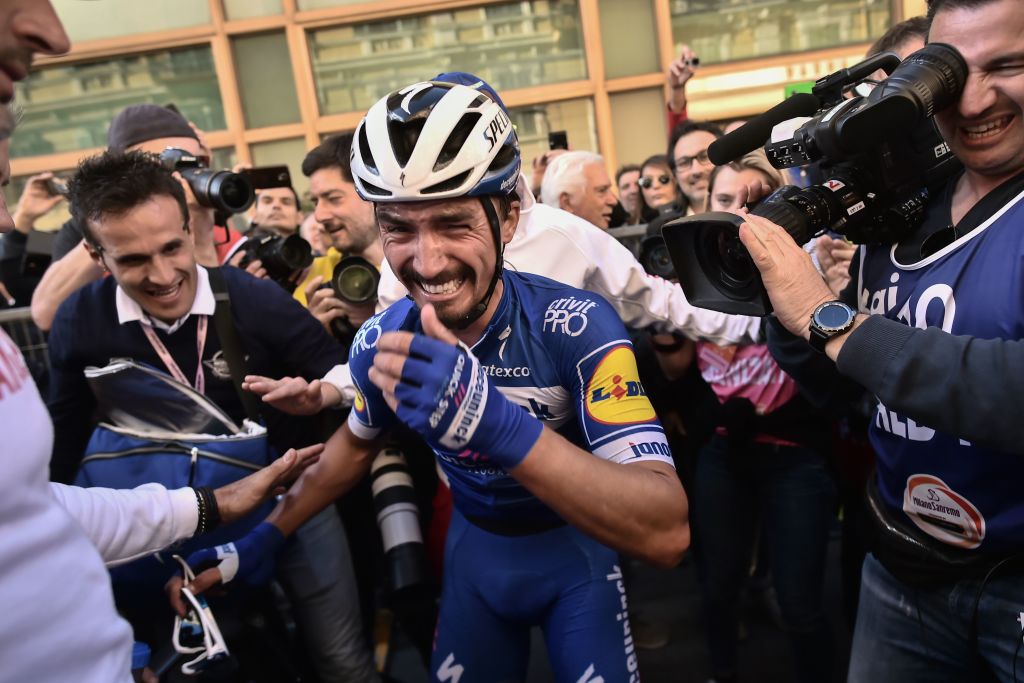
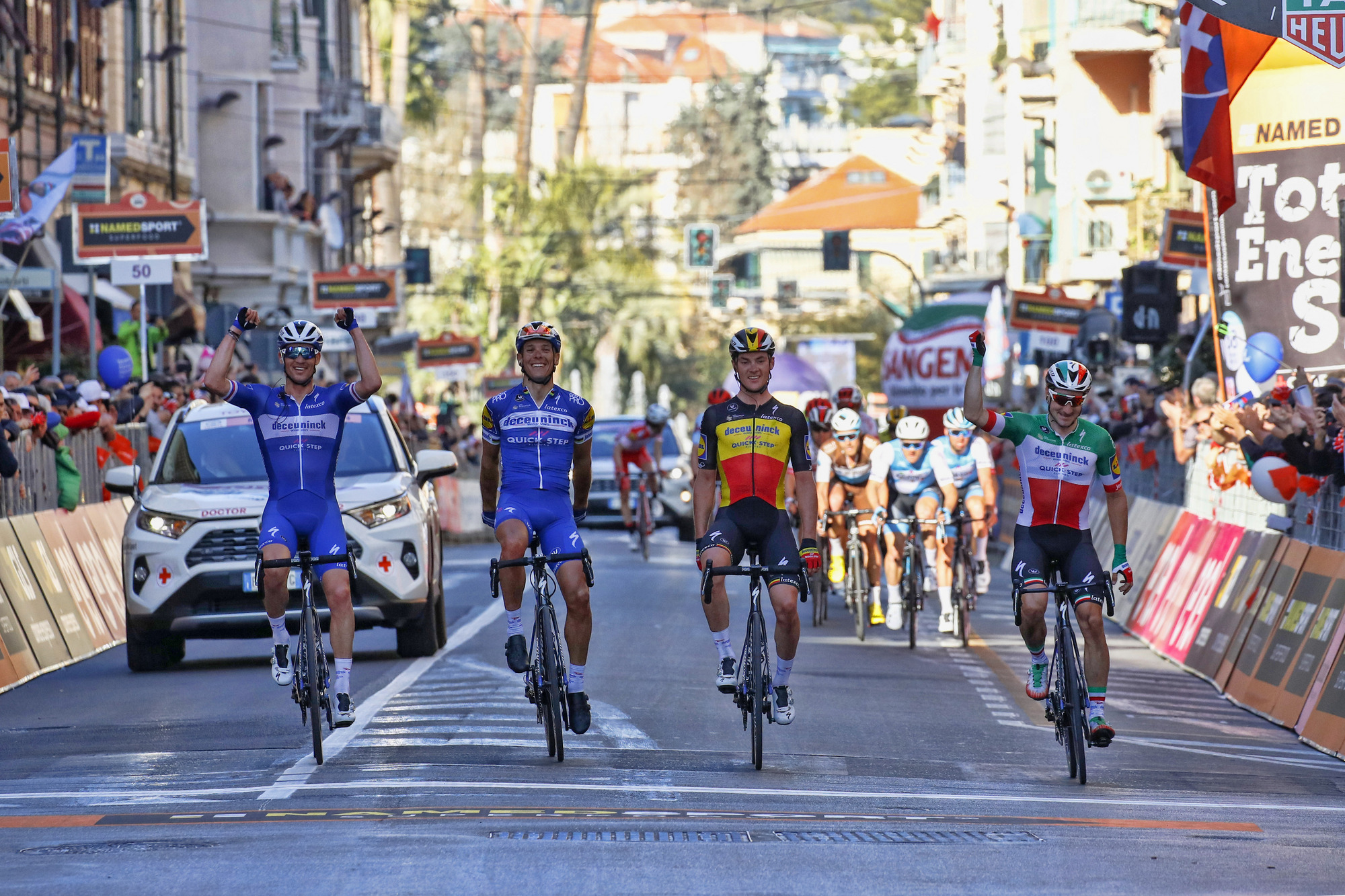
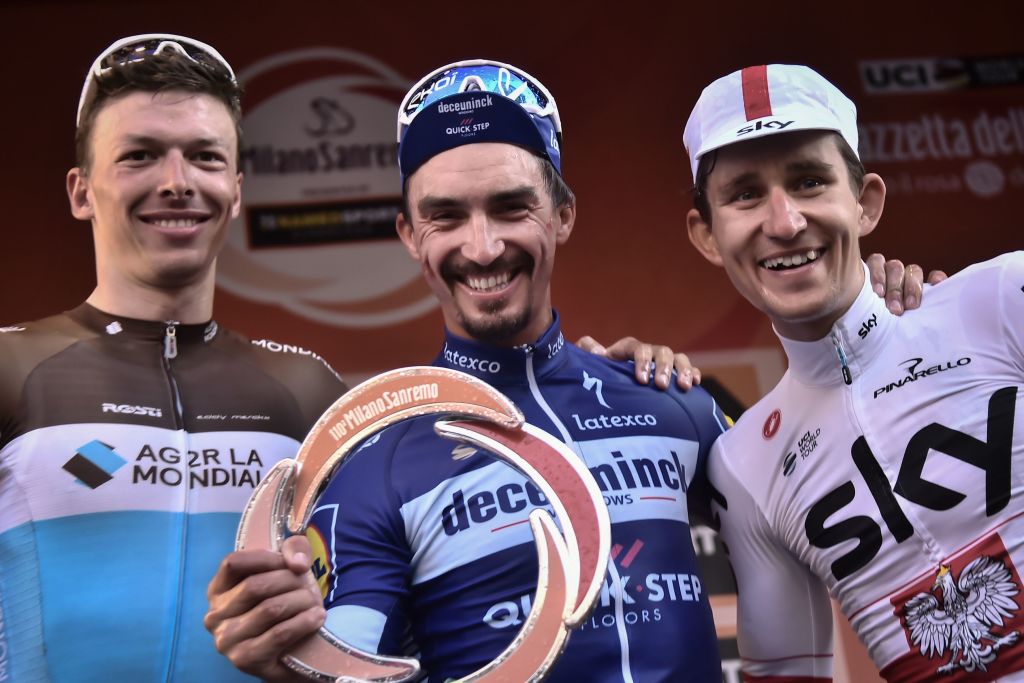
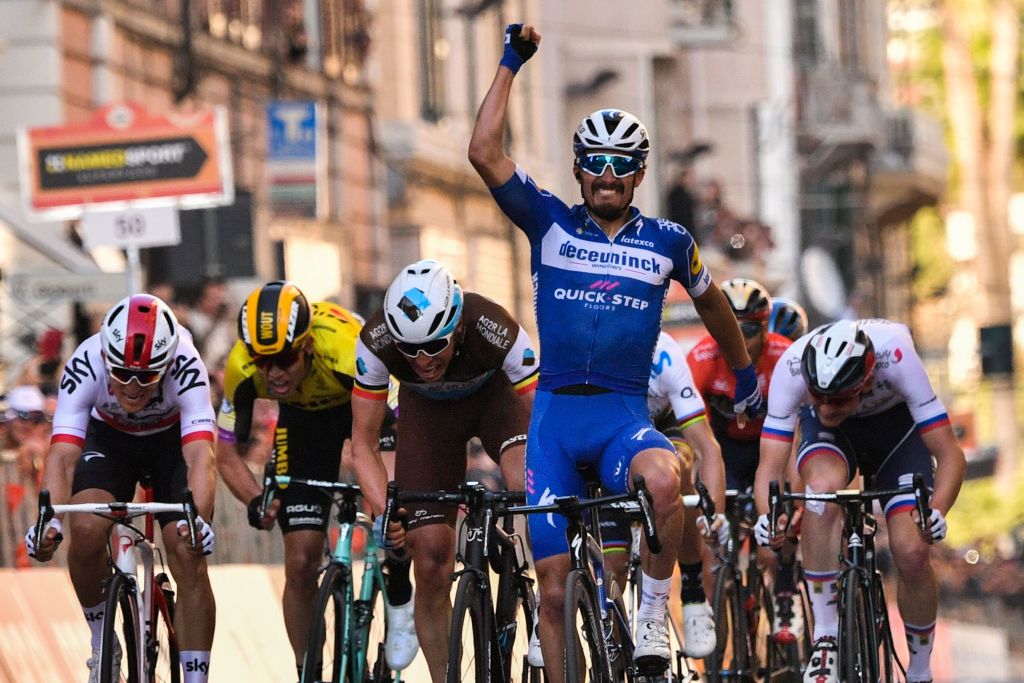
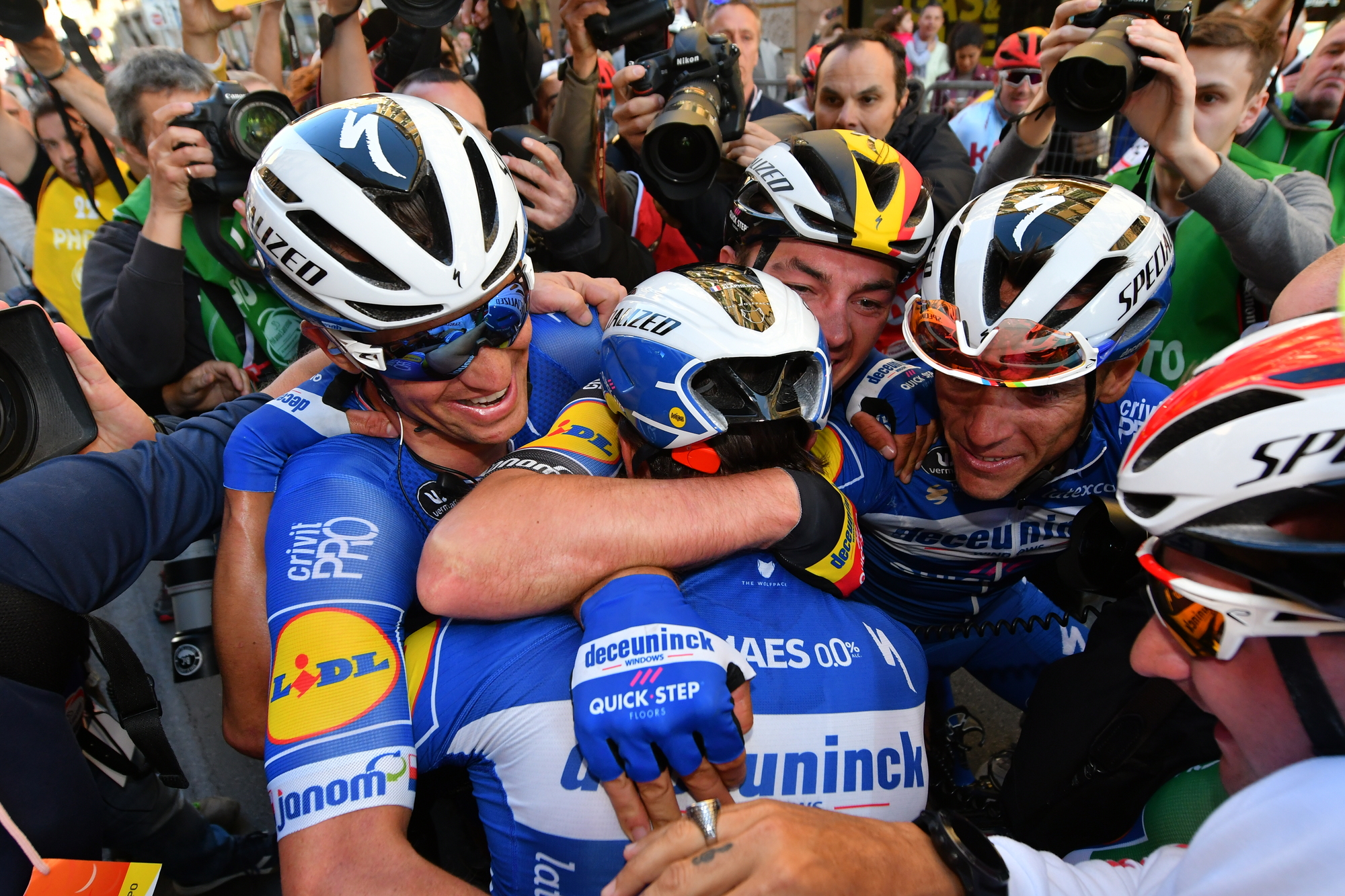
Julian Alaphilippe stopped suddenly after winning Milan-San Remo, overcome with disbelief and emotion but also keen to celebrate the biggest victory of his life with the Deceuninck-Quick Step staff and riders who had helped him win.
“It was simply a sensation of joy,” he explained post-race, after having time to savour his victory and start to realise he had won one of the sport’s biggest races, one of the big five Monuments.
“It’s difficult to take in but I came here to win; it was my goal and the team goal’s and we did it!” he said.
“I went from far out in the sprint but then when I looked left and right, nobody was there. It was an incredible moment, I had to celebrate with my teammates after the line.”
Zdenek Štybar, Philippe Gilbert, Elia Viviani and Yves Lampaert crossed the line spread across the road when they finished, celebrating another superb team effort and yet another victory – their 19th of 2019 – for Deceuninck-Quick Step.
“I’m really proud to have won and proud of the way my team rode,” Alaphilippe said.
“We were solid and united in the final. I knew it’d be difficult to win with the rivals I faced but I stayed calm and made no mistakes, then I did a huge sprint!”
Get The Leadout Newsletter
The latest race content, interviews, features, reviews and expert buying guides, direct to your inbox!
“We always want to win but we shouldn’t forget that first of all it’s the quality of the rider that makes the difference. Look what they did for me today. Štybar has won Strade Bianche [and won this year’s Omloop Het Nieuwsblad –Ed] but he worked for me at Strade Bianche and today too, Gilbert has had great career and he worked for me. That lifts me and we had the experience and confidence to win.”
Improving in racing and in life
Alaphilippe enjoyed a breakthrough season in 2018, his success at La Flèche Wallonne, the Tour de France, the Clásica San Sebastián and the Tour of Britain, realising he had ascended to a new level amongst the best one-day riders in the peloton. Yet he also doubted his ability during the winter, after cracking on the final climb of the World Championships in Innsbruck and missing out on a medal.
He gradually rebuilt his confidence in recent weeks, riding and training in South America at the Vuelta a San Juan and the Colombia 2.1 race so he could be at his very best between Strade Bianche and Milan-San Remo.
“I’ve learnt a lot from my errors and from when I’ve Iost races. It’s been my goal to improve in racing and in life,” he revealed.
“I’d dreamt about Milan-San Remo but it’s not the race that suits me the best. It’s a very, very nervous race, it’s fast, but I tried to save as much energy as I could in the first six hours. It became nervous when the Capi started and I did my best. I stayed calm, saved energy and voila… I won.”
“Winning Milan-San Remo is huge moment in my career,” he added.
A perfectly executed race strategy
Alaphilippe stayed hidden and protected for much of the 291km race from Milan to San Remo, knowing that any eventual attacks on the Poggio would be violent and enough to distance the sprinters. Little did he know that Deceuninck-Quick Step’s fast pace and then his strong attack would set one of the fastest times ever for the Poggio.
“For sure the speed on Poggio decides the final of the race but we know that if there’s a headwind, the sprinters can get over the Poggio with us,” he explained.
“I asked my teammates to be in top three or maximum the top five at the start of the Poggio. We did that and set the speed we wanted. I tried to stay on the wheel and tried to recover in the corners. Štybar did an enormous job. Gilbert asked what speed I anted and I said l flat out. When I went, it was perfect.
Alaphilippe’s attack drew out a select rider group over the top of the Poggio, with Matej Mohorič and Vincenzo Nibali (Bahrain-Merida) and Simon Clarke (EF Education) bridging after the descent to complete the group of ten strong riders. It was a complex and finely balanced final few kilometres, with Peter Sagan (Bora-Hansgrohe), Alejandro Valverde (Movistar) and Matteo Trentin (Mitchelton-Scott) all serious threats.
Alaphilippe knew he had to stay vigilant and ride a perfect finish. He gained confidence of his chances and the final unfolded.
“We knew that Trentin was fast and so when he attacked I thought he could get away, so I made an effort to get on him,” Alaphilippe explained.
“That was good news for me, I realised that the other rides were on their limits. I then stayed focused and then when I saw Mohoric go, I knew it was the right moment. I got on his wheel and managed to finish it all off in the most beautiful way.”

Stephen is one of the most experienced member of the Cyclingnews team, having reported on professional cycling since 1994. He has been Head of News at Cyclingnews since 2022, before which he held the position of European editor since 2012 and previously worked for Reuters, Shift Active Media, and CyclingWeekly, among other publications.